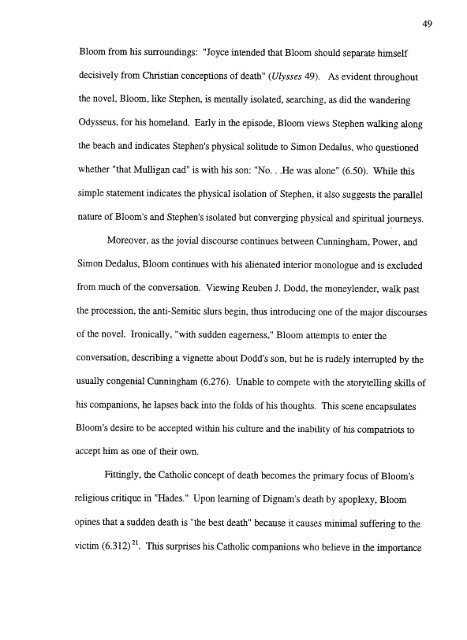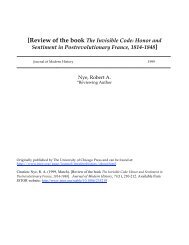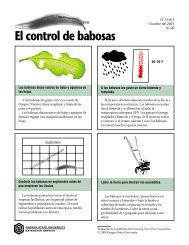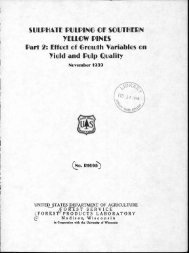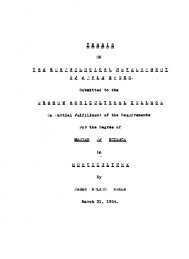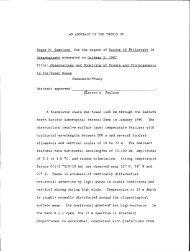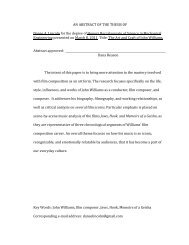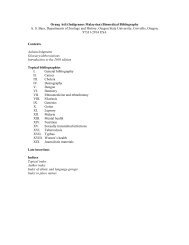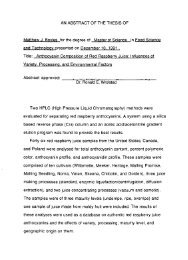Faubourg Saint Patrice - ScholarsArchive at Oregon State University
Faubourg Saint Patrice - ScholarsArchive at Oregon State University
Faubourg Saint Patrice - ScholarsArchive at Oregon State University
Create successful ePaper yourself
Turn your PDF publications into a flip-book with our unique Google optimized e-Paper software.
Bloom from his surroundings: "Joyce intended th<strong>at</strong> Bloom should separ<strong>at</strong>e himself<br />
decisively from Christian conceptions of de<strong>at</strong>h" (Ulysses 49). As evident throughout<br />
the novel, Bloom, like Stephen, is mentally isol<strong>at</strong>ed, searching, as did the wandering<br />
Odysseus, for his homeland. Early in the episode, Bloom views Stephen walking along<br />
the beach and indic<strong>at</strong>es Stephen's physical solitude to Simon Dedalus, who questioned<br />
whether "th<strong>at</strong> Mulligan cad" is with his son: "No.. .He was alone" (6.50). While this<br />
simple st<strong>at</strong>ement indic<strong>at</strong>es the physical isol<strong>at</strong>ion of Stephen, it also suggests the parallel<br />
n<strong>at</strong>ure of Bloom's and Stephen's isol<strong>at</strong>ed but converging physical and spiritual journeys.<br />
Moreover, as the jovial discourse continues between Cunningham, Power, and<br />
Simon Dedalus, Bloom continues with his alien<strong>at</strong>ed interior monologue and is excluded<br />
from much of the convers<strong>at</strong>ion. Viewing Reuben J. Dodd, the moneylender, walk past<br />
the procession, the anti-Semitic slurs begin, thus introducing one of the major discourses<br />
of the novel. Ironically, "with sudden eagerness," Bloom <strong>at</strong>tempts to enter the<br />
convers<strong>at</strong>ion, describing a vignette about Dodd's son, but he is rudely interrupted by the<br />
usually congenial Cunningham (6.276). Unable to compete with the storytelling skills of<br />
his companions, he lapses back into the folds of his thoughts. This scene encapsul<strong>at</strong>es<br />
Bloom's desire to be accepted within his culture and the inability of his comp<strong>at</strong>riots to<br />
accept him as one of their own.<br />
Fittingly, the C<strong>at</strong>holic concept of de<strong>at</strong>h becomes the primary focus of Bloom's<br />
religious critique in "Hades." Upon learning of Dignam's de<strong>at</strong>h by apoplexy, Bloom<br />
opines th<strong>at</strong> a sudden de<strong>at</strong>h is "the best de<strong>at</strong>h" because it causes minimal suffering to the<br />
victim (6.312) 21. This surprises his C<strong>at</strong>holic companions who believe in the importance<br />
49


